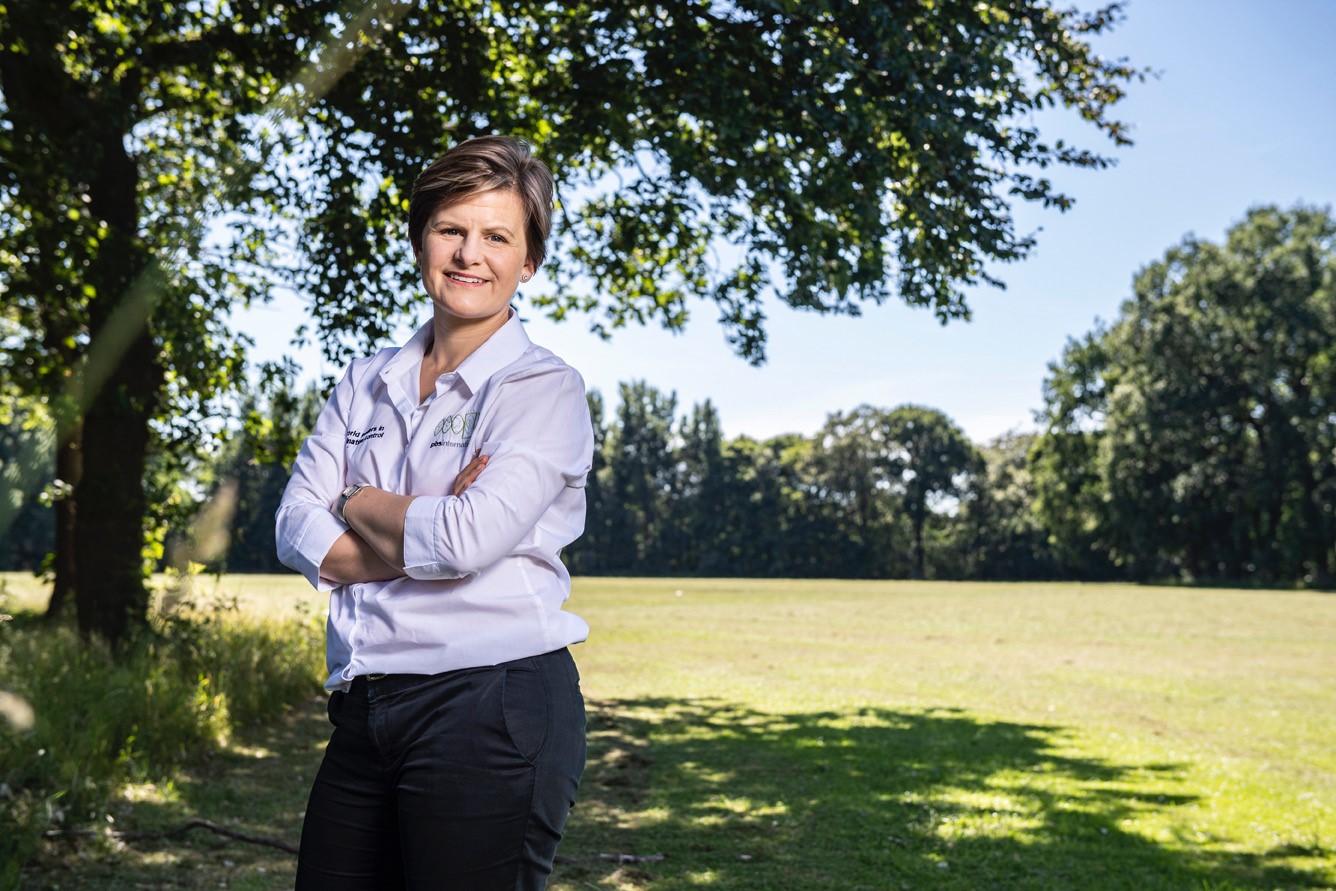Hannah Senior is an agri-tech entrepreneur and a former non-executive director at CHAP. Her work with plant breeders and seed producers takes her across five continents. She is passionate about the role of entrepreneurship in making agriculture more sustainable.
Hannah Senior NSch, CEO of PBS International, said:
“The UK is a powerhouse of fundamental innovation. Playing to these strengths and continuing the important work of defragmentation and bridge-building, we can occupy an important place on the international agri-tech stage.
I came into agriculture through the business route when I acquired and became CEO of PBS International, a company that works with and for plant breeders and seed producers. We export products all over the world to upwards of 30 countries each year. This has given me a chance to meet customers in some truly remote parts of the world, taking planes, trains, boats and automobiles to reach far flung plantations and research centres.
Innovation in agri-tech goes beyond national or sectoral borders. Years ago, when I did my MBA at Stanford, agriculture was largely overlooked by investors, but I could see a huge opportunity to bring technological advances into agriculture and wanted to be part of that.
It’s been exciting to see more investors paying attention to agriculture and big environmental concerns like climate change and water scarcity. I am passionate about supporting innovation in the sector and bringing change to agriculture through entrepreneurship, whether by supporting start-ups or my own company’s research.
Part of my Nuffield Farming Scholarship was understanding how we can improve our agri-tech entrepreneurial ecosystem and the importance of systems thinking in this. Agriculture is pretty unique because it so directly affects environmental, economic and social systems, each of which is very complex. This means change often has non-linear effects.
Ensuring we have tools to understand impacts when we make changes in agriculture is important, particularly when we consider worldwide food security and climate change. Let’s look at potential solutions and assess them holistically, weighing up which ones are going to be most helpful and managing the potential implications of any innovation or change.
Lots of parties operate in agricultural innovation e.g., not-for-profits, farmers, academics. Their different priorities can create a fractured landscape but that’s why the UK Agri-Tech Centre plays an important role in building bridges and encouraging dialogue and collaborative working.
It’s critical to continue to prioritise investing in agriculture and using expertise from other sectors, particularly from well-established disciplines like robotics and database management. The UK Agri-Tech Centre is well placed to do that. The UK is strong in fundamental science and innovation so creating a cohesive and productive landscape to get innovations into the field is incredibly valuable.
One thing I loved about my time with CHAP was chairing the Advisory Group, where we would convene discussions on important topics or technologies in agri-tech. It was a privilege because I was able to talk to all these really interesting people and take part in fascinating discussions. It gave incredible opportunities to understand different perspectives and watch collaboration and innovation unfold.
CHAP took a creative and non-partisan approach to tackling challenges and seeing what might be achieved, which produced valuable frameworks, such as the UK Agri-Tech Centre’s New Innovation Programme. This has gone from strength to strength and starting to effect real change in the industry.
There’s no one-size-fits-all in agriculture, with vast differences within the UK and even more to consider internationally. The UK Agri-Tech Centre presents an opportunity to blend the knowledge of different technologies and their application to agriculture with a neutral open mindedness, beyond policy, with a practical agenda in mind. I’m excited to see the UK’s unique perspective in innovation brought to the international agri-tech landscape.”
